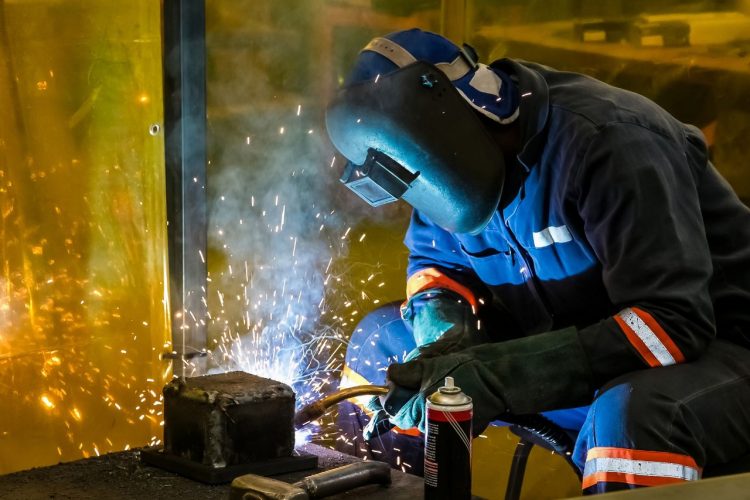The car manufacturing industry is one of the most technologically advanced in the world. Today’s cars are built using precision machines and tools, giving us a vast array of features that weren’t available in the past. It includes robot welders, which have become increasingly popular in recent years for their seemingly endless benefits to manufacturers regarding production speed, accuracy, and cost-effectiveness.
In this article, we’ll be taking an in-depth look at these advantages so you can determine if they’re suitable for your car manufacturing business.
Robot welders are precise and consistent, which leads to a high-quality product
With the increasing popularity of robots in car manufacturing, it’s no surprise that robot welders have made their way into production lines worldwide. Using a robot welder offers numerous advantages over manual welding, and when it comes to car manufacturing, precision, and consistency are key.
Robot welders provide this in spades—with their precise programming, they can produce consistent results every single time, leading to far higher product quality than if done manually. In this way, robot welders offer businesses an innovative and cost-effective way to construct cars of superior quality.
They are fast and can weld large panels quickly
Robot welders are also incredibly fast, a massive advantage in mass car production. The speed of these machines allows for a much quicker turnaround time, meaning that more cars can be produced in less time.
Additionally, a welding robot can quickly and more accurately weld large panels than manual welding methods. It speeds up the entire manufacturing process and ensures that each car is perfectly constructed, ensuring customer satisfaction and loyalty.
They are flexible and can be programmed to weld different types of metals
Robot welders are also highly flexible, as they can be programmed to weld different metals. It means manufacturers don’t have to worry about having multiple welding machines or switching out different welding methods depending on the metal used.
This flexibility allows car manufacturers to save time and money, as they won’t need to invest in separate machines or waste valuable resources switching between welding techniques. But more than that, it increases production efficiency by ensuring all parts are welded the first time correctly.
They can work for longer hours
Robot welders don’t get tired as humans do—they can work much longer hours and achieve consistent accuracy throughout. It is beneficial for car manufacturers as it means that they won’t need to rely on the physical strength of their workers, which could lead to lower productivity rates.
Robot welders can also be programmed to work autonomously, meaning they won’t require constant supervision or risk fatigue from long shifts. It increases efficiency even further, as production is kept from slowing down by taking breaks or waiting for instructions.
They are safe to use around other workers and don’t cause sparks or flames
Robot welders are also incredibly safe to use, as they don’t produce sparks or flames like manual welding methods do. It makes them ideal for car manufacturing facilities, where other workers may be present in the vicinity.
The lack of sparks and flames also means that manufacturers can save money on additional equipment such as fire extinguishers and protective clothing—since these won’t be necessary when using a robot welder. Furthermore, it eliminates any potential safety hazards associated with traditional welding techniques.
They require less welding material to finish a job, saving costs
One of the most significant advantages of using a robot welder is that it requires significantly less welding material to finish a job than manual welding methods. Not only does this save costs on materials, but it also reduces waste—as any excess welding material can be recycled rather than thrown away.
In addition, robot welders can also reduce energy usage by up to 80 percent compared to other welding methods. It saves money in terms of electricity bills and means businesses can make their car manufacturing facilities more environmentally friendly.
They can be programmed to make repetitive welding tasks quicker and easier
Robot welders can also be programmed to perform repetitive tasks quickly and easily, essential for large-scale car production. It eliminates the need for workers to manually complete each welding task, as the robots can do these jobs in a fraction of the time.
Finally, robot welders are easy to operate and maintain, requiring minimal training and no specialist skills or knowledge. It makes them an ideal choice for any car manufacturing facility looking to increase efficiency and reduce costs in the long run.
In conclusion
Robot welders offer numerous advantages over manual welding methods in car manufacturing. They are speedy, flexible, safe, and require less welding material—all of which help to boost production efficiency and reduce costs in the long run.
In addition, they are easy to operate and maintain, meaning that any car manufacturing facility can benefit from using them. These benefits make robot welders an invaluable tool for car manufacturers looking to increase their production capacity and improve their bottom line.





